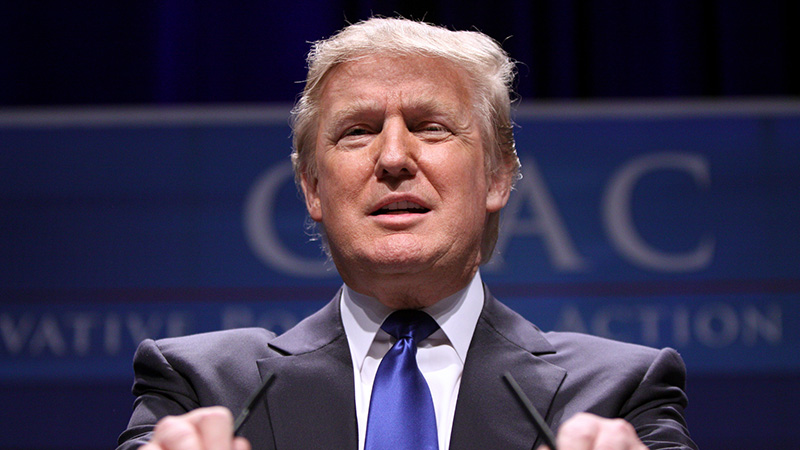There is a lot of riding on the outcome of this US Presidential election.
2016 is on track to be the warmest year on record, with each successive month setting a new high, alarming even the gloomiest of climate scientists.
Without concerted global efforts to reduce emissions over the next decade we and out children will be living in a world utterly transformed.
While the international community has taken efforts to plan for a climate-skeptic in the White House, it is clear that a Trump Presidency would kill global climate action. Early ratification of the Paris Agreement cannot protect us.
The U.S., the world’s largest emitter after China, is responsible for almost a fifth of annual greenhouse gas emissions.
Due to its early industrialization, however, America has accumulated more heat trapping gasses in the atmosphere than any other country. Americans are also wealthier and emit twice as much as the average European or Chinese, and 8 times more than the average Indian.
Weekly briefing: Sign up for your essential climate politics update
These basic data direct us to ineluctable conclusions for successful global action.
First, the U.S. must dramatically reduce emissions at home; second, it must encourage others to follow suit by deploying all soft power instruments at its disposal. While not sufficient to guarantee success, without these necessary prerequisites the international community will certainly fail.
This equation is understood by Obama Administration. On the domestic front, a number of measures have been brought forward to mitigate emissions. The most important are the Clean Power Plan for electricity generators, fuel efficiency standards for vehicles, and tax incentives for solar PV.
While this is a promising start, decarbonisation lags behind leaders such as Germany, the Nordics, and the UK, among others. U.S. emissions increased in 2013 and 2014 and gasoline consumption has increased steadily four years in a row. But these measures form a solid platform for future action.
Report: Obama appeals for climate investment in valedictory UN speech
Internationally, the U.S. has moved the dial. The U.S.-China climate agreement paved the way for one of the biggest feathers in the cap of Obama Administration: The Paris Climate Agreement. History will recall this achievement, which has immense symbolic, legal and political significance.
Its shape reflects American policy entrepreneurship. It includes pledges to reduce emissions from all countries, and ties Parties into a “ratchet” mechanism, whereby they must bring increasingly ambitious plans to the table every five years.
With American, Chinese, European Union and Indian ratification now assured along with nearly 60 other countries, the Agreement will likely enter into force at the beginning of the international climate meeting in Marrakesh on 7 November. It is no coincidence that this is one day before the US Presidential election.
Ratification would mean that a putative President Trump could not deliver on his promise to “cancel the Paris Agreement”. But this is of little real reassurance.
The concept of global warming was created by and for the Chinese in order to make U.S. manufacturing non-competitive.
— Donald J. Trump (@realDonaldTrump) November 6, 2012
While Mr. Trump’s commitment to end “all payments of U.S. tax dollars to U.N. global warming programs” is one concern, the devastating political impact of losing American support for international action cannot be overstated.
There is a little chance that the likes of China, India or Brazil, could maintain momentum to reduce emissions with the wealthiest country free riding on their coattails.
In Europe, where decarbonisation has bedded in, there remains an ongoing political battle to maintain progress. A Trump victory would be wind in the sails of all recalcitrant forces.
This is a man whose energy policy is built around exploiting “vast coal, shale gas and other American energy resources”. He would rescind the Clean Power Plan and he has articulated a pledged to “save the coal industry”.
He supports the building of the Keystone pipeline, which makes possible the further exploitation of the most carbon intensive fossil fuels on the face of the planet.
This energy vision is nothing short of a dystopian nightmare, which would both increase U.S. emissions and result in the collapse of international efforts to combat climate change.
Analysis: How Donald Trump is delaying the Paris climate deal dividend
Ms. Clinton could not have placed greater distance between herself and Mr. Trump on this issue. She would double down on the Obama Administration’s solar power initiatives, which have created over two hundred thousand jobs.
She would continue to boost fuel efficiency standards, which puts fuel-saving dollars in the pocket of car owners.
She would support the vital Clean Power Plan, ensuring that coal is phased out and renewables become the centerpiece of electricity generation; and she would spend $30 billion revitalizing coal communities, setting them on a clean development pathway.
Perhaps more importantly, she would build on the diplomatic efforts that have established American climate leadership. She would support the Paris Agreement and has committed to the international community that she would deliver American commitments.
Doing so would provide moral and political reassurance to American allies in Asia, Europe, South America, and the rest of the world.
It would create clean green jobs and harness the innovative genius and entrepreneurial spirit of the American people behind this worthiest of challenges. Most importantly, it would give the international community an opportunity to check the climate disaster looming on the horizon.
On 8 November American citizens have the power to decide the future. They decide not just for themselves, but for us all.
Joseph Curtin is a member of the Irish Government’s Climate Change Advisory Council and a Research Fellow at the Institute of International and European Affairs, Dublin, and University College Cork.
